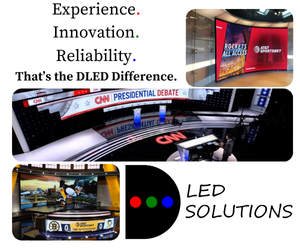WABC celebrates 70 years under its current calls

Subscribe to NCS for the latest news, project case studies and product announcements in broadcast technology, creative design and engineering delivered to your inbox.
ABC’s flagship WABC marked 70 years under its current call sign on March 1, 2023.
From 1948 to 1953, the station used the call letters WJZ, borrowing them from its then sister radio station in the New York City market that used those letters on the FM dial.
Radio call letters were assigned by the Department of Commerce, which oversaw broadcast licensing at the time and were mostly sequential and did not stand for anything. It was also common at the time for companies to mirror the same letters when venturing into TV, though in many cases those signs have been changed over the years.
The station once known as WJZ on FM in New York now uses the calls WPLJ, while the radio call letters WJZ are now used by a station just outside Baltimore. The WJZ television call letters are currently assigned to the CBS-owned station in Baltimore, meaning the set of call signs share market coverage but are operated by different entities.
WABC’s television signal signed on as WJZ Aug. 10, 1948, meaning this coming summer will mark its 75th anniversary, assuming it claims the original WJZ’s television calls history as its own.
WJZ’s radio signal launched in 1927 and traces its history back to NBC. In the 1940s, NBC was forced to create two separate networks, the “red” and “blue” network, due to antitrust concerns — a key point in U.S. broadcast history that would shape the network TV for years to come. The Blue Network would eventually become part of ABC’s radio network.
Today, ABC, CBS and NBC all own and operate their stations in New York City and all use the call letter pattern of W(Network Name), though most of them don’t use the call letters as prominently in on-air branding. In fact, in some cases, the radio versions of the W(Network Name) calls are actually better recognized by consumers.
Meanwhile, Los Angeles stations, which are also all owned by their respective networks, use the K(Network Name) format, following the traditional assignment of “K” call letters west of the Mississippi River and “W” east of it, though there are a handful of stations on either side of the country that have held onto their calls from before this practice as followed to the letter.
Subscribe to NCS for the latest news, project case studies and product announcements in broadcast technology, creative design and engineering delivered to your inbox.




tags
wabc, wjz
categories
Broadcast Industry News, Featured, Local News